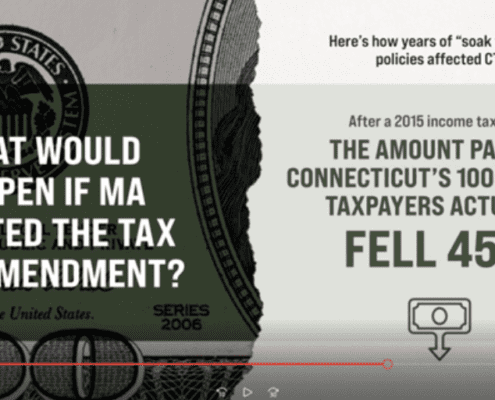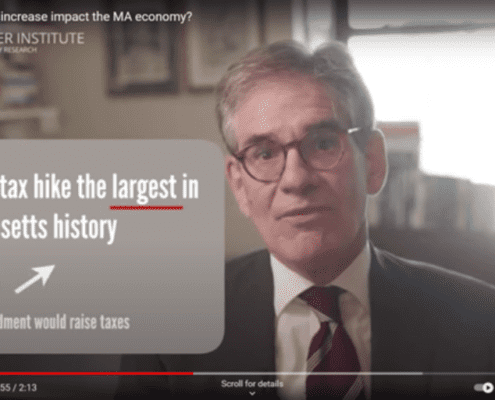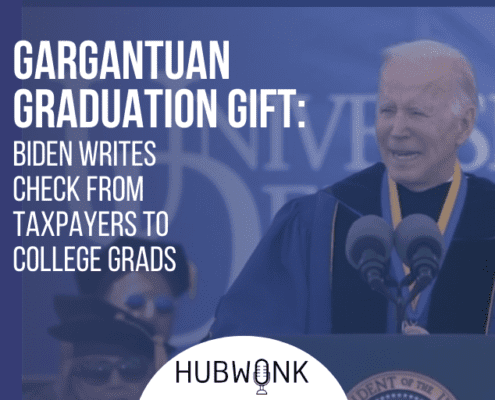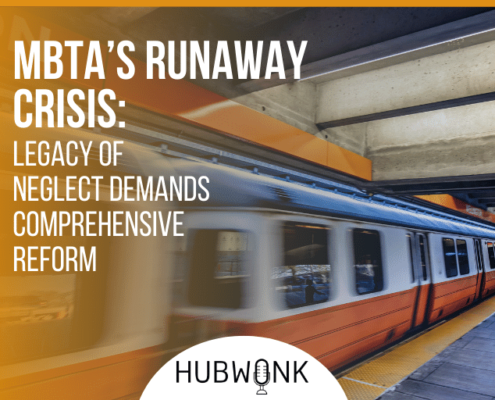
MBTAAnalysis: A look inside the MBTA
0 Comments
/
The MBTA shuttles over a million passengers a day around Greater…
 https://pioneerinstitute.org/wp-content/uploads/CloseupClock-1.jpg
739
1244
Mary Connaughton
https://pioneerinstitute.org/wp-content/uploads/logo_440x96.png
Mary Connaughton2017-02-20 12:34:192017-02-21 09:47:58The Clock is Ticking…….
https://pioneerinstitute.org/wp-content/uploads/CloseupClock-1.jpg
739
1244
Mary Connaughton
https://pioneerinstitute.org/wp-content/uploads/logo_440x96.png
Mary Connaughton2017-02-20 12:34:192017-02-21 09:47:58The Clock is Ticking…….
A Bird’s Eye View: Massachusetts K-12 Education by County
Massachusetts has had the best public school system in the country for the past two decades: along with some of the highest per pupil spending as well. Among the counties, does high per pupil spending translate to better results? The short answer: not really.

PFML v. FMLA: To Pay or Not to Pay Leave-Takers
Congress passed the Family and Medical Leave Act in 1993 to ensure citizens’ job security should they need to take an extended leave, but it did not require any replacement wages to be paid for that time period. Then, Massachusetts passed their Paid Family and Medical Leave law in 2018 which set out requirements for employer and employee contributions to a PFML fund so that employees could get paid in addition to keeping their jobs should they need to take leave for certain reasons.

Online Sports Betting as a Form of Tax Revenue
The legalization of sports betting in Massachusetts has been successful so far in terms of bringing in tax revenue. Although there's a chance for a dip in volume this summer, it will continue to be a strong source of revenue for the commonwealth.

A Tale of Two Massachusetts: Wealth and Labor Differences Between East and West
This blog compares the income, wealth, and property values of western Massachusetts to those of eastern Massachusetts, highlighting the west's potential for growth.

Unemployment: A Massachusetts vs. New England Comparison
Massachusetts has seen a trend of above average unemployment rates in comparison to other New England states in recent years. This may be attributed to the greater average unemployment benefit payouts, and duration of benefits, which Massachusetts has had.

Hampden County Resilience: Thriving Despite Manufacturing Decline
Hampden County has experienced decline in its manufacturing sector, a former backbone of its economy. However, the county has still experienced this in spite of this, showing growth in new sectors.

State, Regional, and National Employment Trends Point to an Aging Workforce: Part Two
This blog furthers the discussion about the aging workforce by examining how decreased employment among young people as they turn to education instead impacts the issue. Then, it explains the implications of an older workforce on the future of labor and productivity in the U.S.

State, Regional, and National Employment Trends Point to an Aging Workforce: Part One
This blog explores the factors which have contributed to observed trends of increased employment among the 65 and older demographic in Massachusetts, New England, and the United States at large, as it pertains to the aging of the workforce.

The MassLottery: A Bay Stater’s Favorite Pastime
The Massachusetts lottery made $5.9 billion in 2021, making it the fourth-highest source of revenue for the state. This confirms a long-standing trend: that Massachusettans love to play the lottery.

Massachusetts is Losing Taxpayers to More Tax-Friendly States
This post explores the difference among tax policies in Massachusetts, New Hampshire, and Florida in order to explain the increasing amount of Massachusetts residents who are migrating from the state. Tax-friendly policies are very alluring to Massachusetts residents, seeing as the state is actually increasing the personal income tax rate rather than try to lower taxes, as both New Hampshire and Florida have done.

Healthcare: Suffolk County’s Biggest Driver for Labor and Employment
Suffolk County employment and labor trends have seen steady growth over the past 15 years. The rise of establishments and employment in the health care sector has directly contributed to these trends. Suffolk County has now surpassed Worcester and Essex counties in labor force and employment numbers.

The Confounding Massachusetts Estate Tax
The estate tax has become an increasingly significant source of revenue for the Bay State in recent years. Why is this: and is it a good thing?

Massachusetts’ Misguided Middle-Class Health Insurance Subsidy Expansion
A proposal on Beacon Hill to expand insurance subsidies up to 500 percent of the federal poverty level, could push the small business insurance market into a death spiral, without reducing the number of uninsured and hurting those with preexisting conditions.

A Model for Occupational Licensing Reform in the Bay State
Licensing for many professions squeezes the supply of services, artificially inflating prices and creating wage premiums. One study from the Institute for Justice put the wage premium relative to an environment without any occupational licensing at a whopping 22 percent in Massachusetts.
 Image by Freepik.com
Image by Freepik.comA History of Rent Control Policy in Massachusetts
While many may only remember the 1994 referendum and the laws…

Corporate Ownership: A Threat to Housing Affordability?
An increase in corporate ownership of housing has some experts worried about potential consequences of such a shift. One study found a link between LLC ownership and housing stock that is in disrepair, with more rapid deterioration than would be expected if ownership had not changed.

Sunshine Week 2023: Shining Light on the Workings of Government
Pioneer Institute is proud to join with the media and others—including The Boston Herald, The Boston Globe, CommonWealth Magazine, Common Cause, and the ACLU—in marking Sunshine Week, March 12-18.

The Debate Over Rent Control Re-Emerges Amid Housing Crisis
There is a housing crisis in the Bay State, a fact unlikely to…

Happy Holidays
During this festive season, we want to wish you and your loved ones a joyous holiday and happy New Year.

MBTA Safety Overhaul: Retooling Teams For Trustworthy Transit
This week on Hubwonk, host Joe Selvaggi talks with transit advocate and expert Chris Dempsey about ways in which structural change in the MBTA's safety oversight can be reformed to improve performance, engender greater trust amongst the region’s riders, and reduce transportation congestion in our growing economy.
 https://pioneerinstitute.org/wp-content/uploads/eric-prouzet-B3UFXwcVbc4-unsplash-scaled.jpg
1707
2560
Aidan Enright
https://pioneerinstitute.org/wp-content/uploads/logo_440x96.png
Aidan Enright2022-12-08 14:33:242022-12-08 14:33:24Where Are All the Workers?
https://pioneerinstitute.org/wp-content/uploads/eric-prouzet-B3UFXwcVbc4-unsplash-scaled.jpg
1707
2560
Aidan Enright
https://pioneerinstitute.org/wp-content/uploads/logo_440x96.png
Aidan Enright2022-12-08 14:33:242022-12-08 14:33:24Where Are All the Workers?
Is CHIA’s Drug Cost Data Reliable?
Earlier this year, the Center for Health Information and Analysis (CHIA) released its Annual Report on the Performance of the Massachusetts Health Care System for 2020. The Massachusetts Legislature relies on CHIA data when considering bills to regulate drug costs and prices. The advocacy group Health Care for All reported that CHIA data showed prescription drug spending grew by 7.7 percent in 2020, more than twice the benchmark - but the most reliable data on prescription drugs indicates that spending in 2020 was essentially flat.

How did tax hikes work out for Connecticut?
Pioneer Institute's Charlie Chieppo shares data on the economic impact of tax increases in Connecticut - which has the 2nd highest state and local tax burden in the country and ranks 49th in private sector wage and job growth. As Massachusetts considers a proposal to raise income taxes, it is important to learn from the experience of other states. Learn more.

Jeff Wetzler, Co-founder of Transcend, on Innovation in School Design
This week on “The Learning Curve," Cara Candal and Gerard Robinson talk with Jeff Wetzler, co-founder of Transcend, a nonprofit focused on innovation in school design that works with hundreds of school communities in over two dozen states in America.

How would a tax increase impact the MA economy?
Pioneer's Charlie Chieppo explains how an income tax hike in Massachusetts will impact retirees and small business owners - not just "the super rich."

Globe columnist Shirley Leung makes our argument on the tax hike amendment
In today's Boston Globe, business columnist Shirley Leung raises important questions about who exactly will be impacted by the tax hike amendment that will appear on the Massachusetts ballot in November. The answer is retirees and small business owners - and we have the data to prove it.

Is this PBM tactic blocking healthcare access?
Utilization Management (UM) was originally a strategy designed to improve the safety, quality, and cost-effectiveness of physician prescribing. However, UM has grown exponentially over the last decade, becoming more a tactic for Pharmacy Benefit Managers (PBMs) to manage costs to benefit their bottom line.

Gargantuan Graduation Gift: Biden Writes Check From Taxpayers To College Grads
This week on Hubwonk, host Joe Selvaggi talks with Dr. Beth Akers, AEI Senior Fellow, about the recent presidential executive order to cancel an estimated $500 billion in outstanding student debt. They explore who benefits, who pays, and the likely effects on tuition and the borrowing habits of future students.

Public Comment on Allston Multimodal Project
We remain pleased with the decision of MassDOT to concentrate its efforts on the all at-grade option for the throat area of the Allston Multimodal Project as recommend by Pioneer Institute and others. However, we are deeply concerned that the construction will negatively impact commuters coming into Boston from points west.

MBTA’s Runaway Crisis: Legacy of Neglect Demands Comprehensive Reform
This week on Hubwonk, host Joe Selvaggi talks with Andrew Bagley, Vice President for Policy and Research at Massachusetts Taxpayers Foundation, about their recent report entitled, The MBTA Crisis is Complicated - Fixing It Will Be Too, diving into the details on why the T is in crisis and what the public must demand of policy makers to get it back on track.
